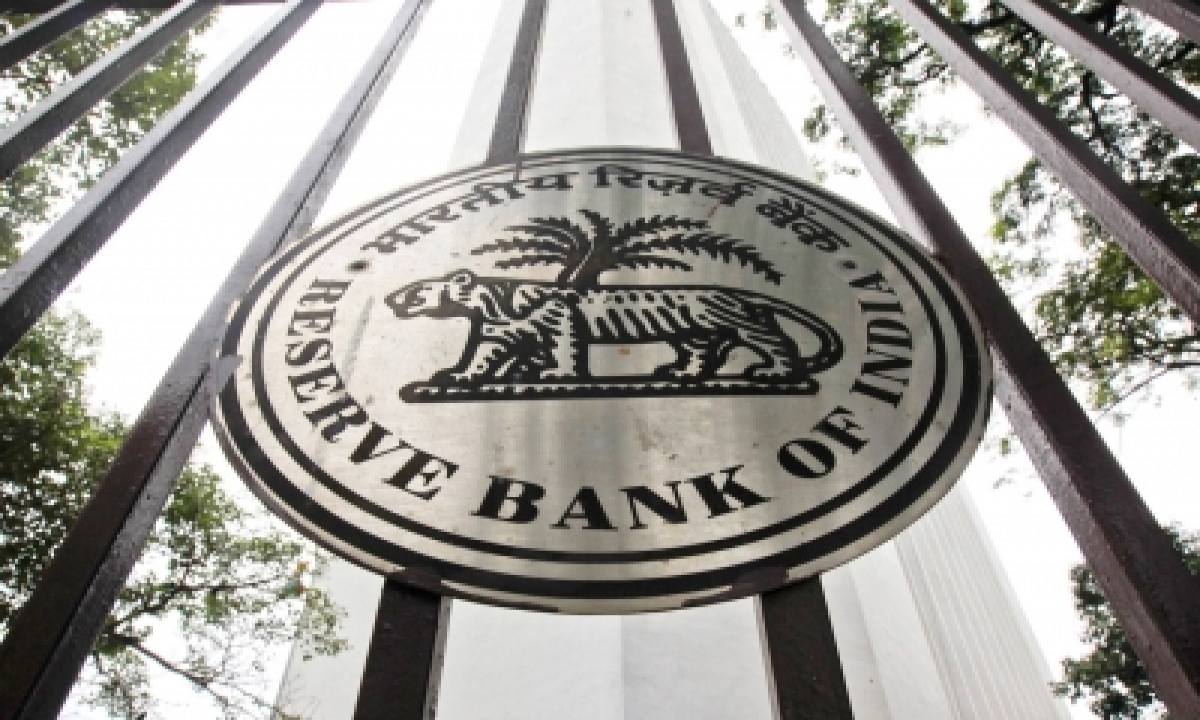Mumbai, April 7 : To support a faster economic recovery amid a resurgence of Covid-19 cases, the Reserve Bank of India on Wednesday retained its key short-term lending rates along with the growth-oriented accommodative stance at the first monetary policy review of FY22.
Accordingly, the Monetary Policy Committee (MPC) of the central bank voted to maintain the repo rate, or short-term lending rate, for commercial banks at 4 per cent.
Likewise, the reverse repo rate was kept unchanged at 3.35 per cent, and the marginal standing facility (MSF) rate and the ‘Bank Rate’ at 4.25 per cent.
In a virtual address after the Monetary Policy Committee’s bi-monthly meet, RBI Governor Shaktikanta Das said that the growth rate forecast has been retained at 10.5 per cent.
Besides, he said India’s GDP is expected to grow on the back of accelerated anti-Covid vaccination drive as well as gradual release of pent up demand.
However, he warned against the resurgence of Covid-19 infections and high commodity prices.
Furthermore, the RBI has pegged retail inflation for the April-June quarter of the current financial year at 5.2 per cent.Das said the evolving CPI inflation trajectory is likely to be subjected to both upside and downside pressures.
“The bumper foodgrains production in 2020-21 should sustain softening of cereal prices going forward, while the prices of pulses, particularly tur and urad, remain elevated, the incoming rabi harvest arrivals in the markets and the overall increase in domestic production in 2020-21 should augment supply which, along with imports, should enable some softening of these prices going forward,” he said.
The RBI Governor cited that while edible oils inflation has been ruling at heightened levels with international prices remaining firm, reduction of import duties and appropriate incentives to enhance productivity domestically could work towards a better demand-supply balance over the medium-term.
Suggesting that the states and the Centre should take steps to control the rising fuel prices, Das said: “Pump prices of petroleum products have remained high.Reduction of excise duties and cesses and state level taxes could provide some relief to the consumers on top of the recent easing of international crude prices.This could slow down the propagation of second round effects.”
The impact of high international commodity prices and increased logistics costs are being felt across manufacturing and services sectors, he added.
Inflation expectations of urban households one year ahead showed a marginal increase over the three months ahead horizon, according to the RBI’s March 2021 survey.
“Taking into consideration all these factors, CPI inflation is now projected as 5.0 per cent in Q4:2020-21; 5.2 per cent in Q1:2021-22, 5.2 per cent in Q2, 4.4 per cent in Q3 and 5.1 per cent in Q4, with risks broadly balanced,” it said.
Meanwhile, the India Inc welcomed the MPC decision with stock markets rallying after RBI’s announcements.
“With the MPC forecasting CPI inflation to average around 5 per cent in FY2022, rate cuts seem to be ruled out unless economic activity is severely disrupted by the ongoing wave of Covid-19,” said Aditi Nayar, Principal Economist, ICRA.
“At the same time, early rate hikes appear extremely unlikely, with inflation expected to remain below the 6 per cent upper threshold of the MPC’s newly renewed medium-term target range.Therefore, we maintain our view of an extended pause in the repo rate through 2021, with a low likelihood of an upward revision in the reverse repo rate over the next two quarters,” Nayar added.
According to Sunil Kumar Sinha, Principal Economist, India Ratings and Research: “Growth recovery from the Covid-19 induced slump has been sharper than anticipated.However, the second wave of Covid-19 infections in certain parts of the country and the associated localised lockdowns could adversely impact the growth impulses in the economy and delay the return to normalcy despite the ongoing vaccination drive.Further, the downside of the sharper than anticipated recovery has been an abrupt rise in the global commodity prices leading to cost-push pressure on inflation.
“Though cost push pressure has partially been offset by the normalisation of supply chains, it will remain a driver of future inflation.While growth outlook and consumer sentiment once again looks somewhat unstable due to the second wave of Covid-19 infections, inflation outlook amid the bumper foodgrain production and rising global commodity prices appear to be more evenly balanced.
Thus Ind-Ra believes RBI to continue with its accommodative policy stance and maintain status quo on policy rate over the next six to nine months
.






